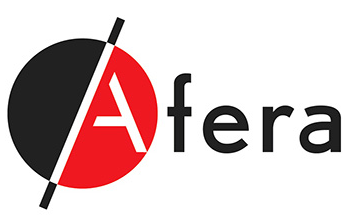
Waste framework directive (WFD) & Packaging and packaging waste directive (PPWD)
The E.U. Waste Framework Directive 2008/98/EC (WFD) sets the basic concepts and definitions related to waste management, such as definitions of waste, recycling, recovery. It explains when waste ceases to be waste and becomes a secondary raw material (so called end-of-waste criteria), and how to distinguish between waste and by-products. The directive lays down some basic waste management principles: it requires that waste be managed without endangering human health and harming the environment, and in particular without risk to water, air, soil, plants or animals, without causing a nuisance through noise or odours, and without adversely affecting the countryside or places of special interest.
Packaging is one of the waste streams falling under the WFD. Originally approved in 1994, the E.U. Packaging and Packaging Waste Directive 94/62/EC (PPWD) sets the essential requirements (ERs) for the packaging materials to which all packaged products must adhere. These involve reducing packaging waste and establishing design requirements for packaging materials.
Some of the ERs set in 1994 did not take Circular Economy requirements into consideration, so this is being newly addressed in the PPWD. The increased use of recycled material in packaging materials is an ER which is being re-evaluated for setting additional goals, as well as increasing the effectiveness and efficiency of EPR schemes.
PPWD essential requirements (ERs) updated in country-specific legislation
In April 2020, consultant Eunomia issued a guidance document on how the PPWD should be translated into national legislation and implemented by each of the E.U. Member States (MSs). Some of the main issues covered by the guidance could affect the adhesive tape industry.
With respect to use for packaging materials, adhesives are mentioned as possibly forming small particles during paper processing, resulting in “stickies” which hinder recycling by compromising both the equipment and the final product. This could lead to regulating the adhesives that can be used in packaging tape.
Furthermore, the siliconised paper liner for tape (e.g. for double-sided tape) is especially relevant to the pressure-sensitive labelling industry. Siliconised liner is stated as being non-recyclable, a delineation which may prevent the use of these types of release liners. There are technical solutions for recycling liners, and the requirements for these need to be regularised and specified, just as many criteria need to be set for recyclability of items throughout the supply chain.
A public consultation in which the European Commission invited stakeholders to provide comments on the updated ERs for its roadmap was concluded on 6 August 2020.
Fee harmonisation of extended producer responsibility schemes
Extended producer responsibility schemes (EPRs) offer a way to implement the “polluter pays” principle, in which the cost of waste management is allocated to the original producer or an intermediary in the supply chain. This is mandatory for several waste schemes, including packaging (PPWD) and electronics (WEEE), but it requires country-specific implementation. Consultant Eunomia prepared a guidance document on EPRs, released in May 2020, with the aim of harmonising how the schemes are implemented across all E.U. MSs as much as possible. The actual E.C. guidance is set for subsequent release and will be monitored by Afera.
An issue that must be addressed, as mentioned above, is the compromising of the paper recycling process by adhesives. This could potentially affect the recyclability of materials and therefore the way that the EPRs are introduced.

